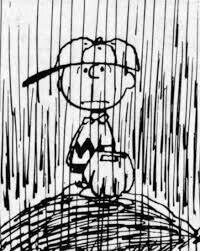As a New Yorker, I am often on the subway, and often for a lot more of my waking hours than I would prefer, (research shows that long commutes are correlated with mental and physical health problems.) I’ve learned to cope with the stress of commuting by reading, listening to music or listening to podcasts.
But sometimes the trains are delayed or skip my stop, causing me to be late to important appointments. This is always frustrating. My reaction to this used to be to think to myself “Great – once again, the transit system is screwing up my day. Why does this always happen on my subway line? Why does this always happen to me?” And so forth. When I would do this, I would get frustrated, and even irritable, often for hours after I got off the train.
One day, a few years back, I had a frustrating subway experience when the train skipped my stop, with no announcement that this was to happen until it was too late to get off the train and find a different route to my destination. Realizing that I was likely not the only person frustrated with this situation, I turned to a fellow commuter and said “You’d think they’d announce that they were skipping Spring Street before we left Astor Place,” and she immediately responded, “I know, right? It’s so annoying!” Before I knew it, several of the other passengers were commiserating with us.
The important takeaway was that none of us appeared that angry. We were mostly smiling and laughing. All of us were certainly still annoyed, but it didn’t feel so bad. I think the reason for this is that this was no longer something happening to me; it was happening to us. It wasn’t a black cloud following me around, raining on my parade and causing me, and me alone headaches and stress. It was something that my neighbors and I were experiencing together.
I’ve found that people often identify frustrating experiences as proof that they can’t get a break. But if we recognize that we’re not being singled out, but rather are sharing in a daily annoyance, it really seems like just that – an annoyance – and not yet another example of our bad luck. And the fact that it is shared means we are not so unlucky.
If you get set off by such things, the next time it happens, check in with someone in the same situation, and see how you feel afterwards.
